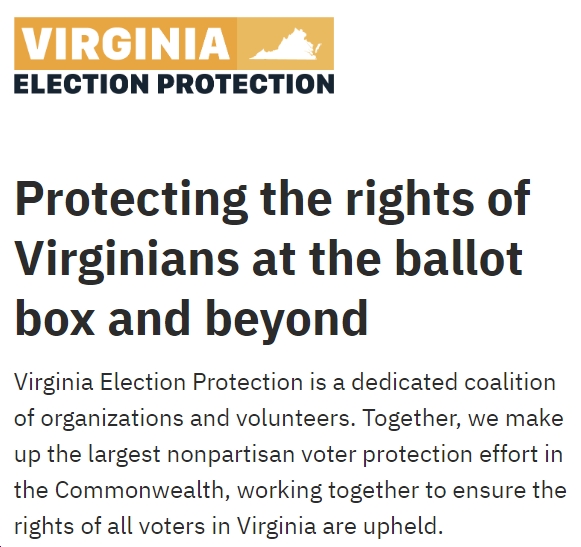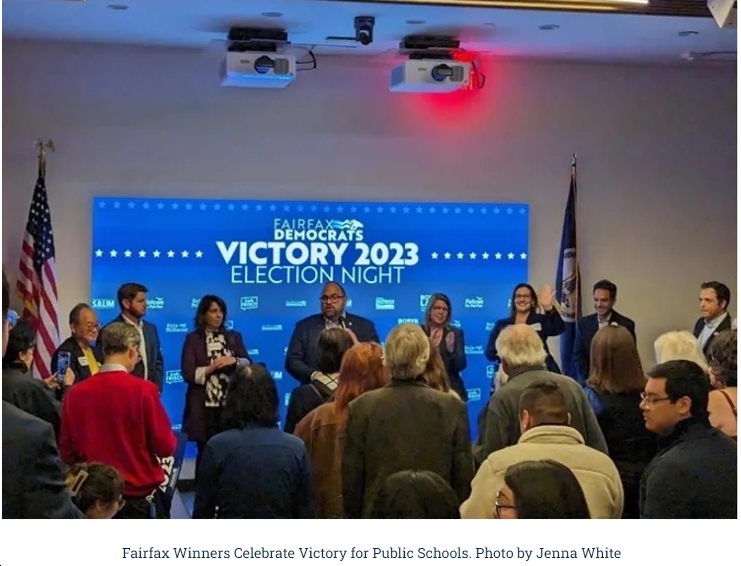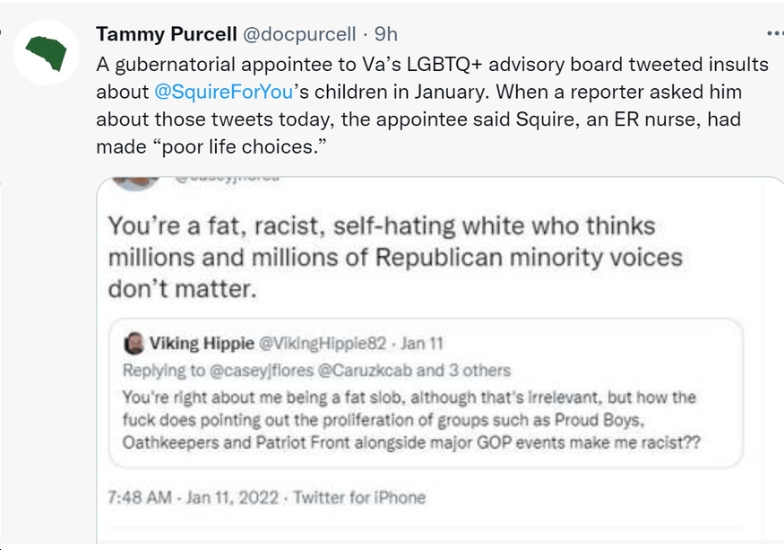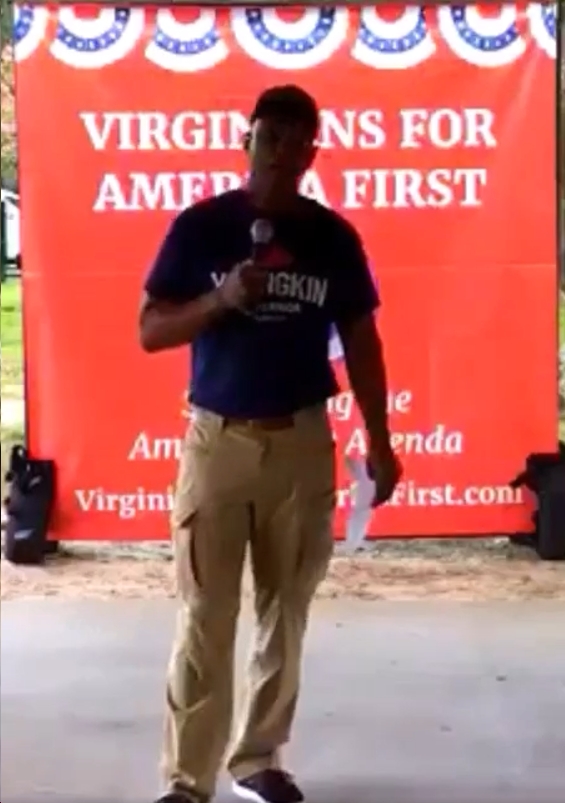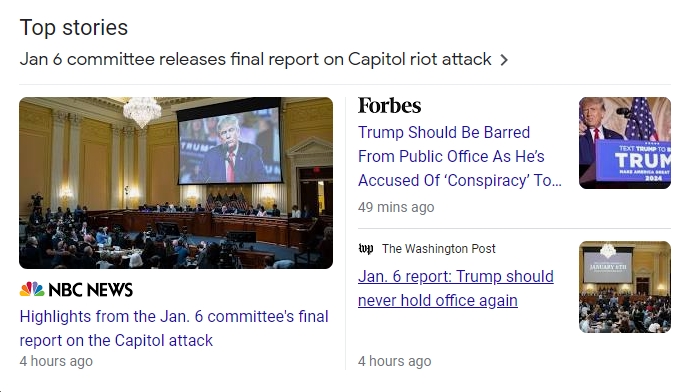by Lily Franklin, 2023 Democratic nominee for HD41
It’s tempting in Virginia to sprint between every election without looking back. My team and I just wrapped up a grueling, year-long campaign in which we took a district that voted for Youngkin and Trump and made it the second-most competitive race in Virginia’s 2023 election cycle. While we lost the campaign for House District 41, we did so by a margin of only 183 votes – an impressive result for a campaign largely considered a Southwest Virginia Democratic pipedream.
A loss this narrow is both encouraging and maddening. I’m immensely proud of our work, our team, and how close we came to claiming this district. But I’m concerned that we as a party will fail to assess ourselves as we dive head-first into the 2024 and 2025 statewide elections. We can’t afford to do that in Virginia.
Growth is uncomfortable. It requires looking in the mirror rather than out the window. But without it, we’re doomed to repeat past mistakes and lose ground. Though I’m not one for publicly sharing campaign strategy, I’ve been asked to compile a few takeaways about our campaign.
What follows here isn’t an airing of grievances. It’s a transparent assessment of what I think we can do as Democrats to ensure we’re showing up for folks, and it all stems from my experiences over the last year as a battleground Democratic nominee for Delegate in Southwest Virginia. What’s next for me and this district is to be determined, but I know one thing for damn sure: I’m not giving up on this region.
Background: House District 41 covers parts of Roanoke and Montgomery counties. It includes all of Virginia Tech’s campus, and was an open seat created in the redistricting process. The most recent Democrat to represent this area in the General Assembly was Delegate Chris Hurst. When he lost in the 2021 General Election, Delegate Sam Rasoul (for whom I served as Chief of Staff and worked with for five years) became the westernmost Democrat in Virginia’s legislature.
I’m a former teacher who grew up in Roanoke County in a working-class family. My roots run deep here, and I decided to run for office because I’m passionate about Southwest Virginia. My experiences as a legislative staffer and a teacher, my age (I’m 29), and my commitment to uplifting working-class families made me an ideal candidate for this region. I was declared the Democratic nominee in April and bypassed a primary.
Takeaway #1: None of the House of Delegates election results would have been possible without our House Democratic Caucus Executive Director Amy Friedman and her team. She made it clear from the beginning of her tenure that all House Democratic nominees deserved the basic tools to run their campaigns effectively. She and her team never deviated from that mission, providing access to a seasoned caucus staff, high-quality training for campaign processes, and general guidance through Election Day. Additionally, Amy fought for HD-41 to be a targeted “battleground” district, and for that, Southwest Virginia owes her a great deal of appreciation.
Takeaway #2: My campaign manager and I spent the entire month of December strategizing how we could win this election. Once we had our roadmap, we never deviated. I mean never. If something didn’t align with our strategy, our values, or our secondary campaign goals, it didn’t happen. We were intentional about our every move, and it paid off.
Takeaway #3: Every campaign aims to win. But secondary goals are crucial for long-term development and (conveniently) are a great way to live out our values. Some of my passions include building a deeper Blue bench in rural spaces, empowering women candidates, and leveling the playing field for regular folks who step up to run for office. The Blue wave that propelled us to such a narrow loss also flipped two Montgomery County Board of Supervisors seats, elected a highly qualified young woman to Circuit Court Clerk, beat out extreme school board candidates, and crept up Democratic numbers in some of our Reddest precincts. Our staff eagerly made themselves available to assist our local candidates along the way. In the end, we all benefited from the coordination.
Takeaway #4: With statewide elections slated for the next two years, I can’t say this enough: We’ve got to do better in rural regions. I’ve spent years listening to D.C. consultants share wisdom about rural politics. It rarely mirrors any experiences in these spaces. Standard Democratic campaign playbooks don’t work in rural Virginia, and that isn’t limited to field ops – messaging toplines, paid communication outreach, and everything else should be flexible when approaching rural voters. Keep in mind that most of these folks haven’t been contacted by any politician, let alone a Democrat, in years. Early outreach builds immense trust in these communities.
While HD-41 is a tossup largely because of Virginia Tech, our field team still adopted a different strategy for the district’s rural areas. Our team aimed to prevent my opponent from garnering more than 80 percent of votes in any precinct. In the end, he never hit 75 percent. We flipped two rural precincts and moved one “Strong Republican” precinct to “Lean Republican” (see maps below for a comparison to 2021 performance). Without delving into internal campaign decisions, I urge folks running statewide to have an intentional, well-informed strategy for making gains in these rural spaces. Winning statewide means we can’t leave behind rural voters just because we don’t want to take the time to understand them.
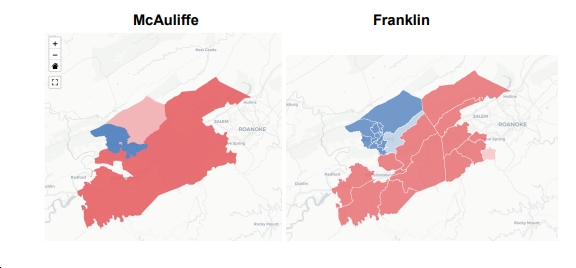
Takeaway #5: I’m an avid believer that money isn’t everything in a campaign. My experiences with both targeted and non targeted races convinced me that investment timing matters more than investment totals. While my campaign was targeted by the House Democratic Caucus and we continually heard positive feedback from party insiders and elected officials, we received about one-fourth of the cash investment of other battleground races (exact totals won’t get reported until next month’s filing deadline). Frankly, an additional $100,000 strategically timed for our race would have won this district.
In addition to caucus contributions, targeted campaigns normally receive investment from outside 501(c)4 organizations and PACs. That investment can be direct cash donations, or in-kind donations of staff time, digital ads, etc. I’m not personally wealthy, nor is my family. I worked three jobs throughout the duration of the campaign, so partner investment was crucial for our race. The hardest part of this campaign was continually being turned down by organizations that endorsed me because they simply don’t understand or care about Southwest Virginia.
I want to be clear: There is enough money in Democratic politics to win majority-making districts AND pick up swing districts in the process. This problem will fester, especially considering every recent election shattered previous fundraising and spending records. Until we have significant campaign finance reform in Virginia, it’s going to take organizational transparency and probing from high-dollar donors to hold these groups accountable. Campaign contributions should reflect candidate commitment, district results, and our Democratic values rather than backroom deals or intra-organizational politics.
Takeaway #6: This last tidbit largely contributed to my previous takeaway. GenZ will vote, but they won’t participate in traditional polling. We’re not polling young voters effectively as a party. That reality will only be reflected in internal campaign communications. I urge our campaign folks to assess actual election results with projected results, especially as it relates to voter age. I’m no data scientist, so I don’t have an answer on this one. But it’s (basically) 2024. Let’s get it done.
###
Lily Franklin was the 2023 Democratic Nominee for Virginia’s 41st House District in Southwest Virginia. She resides in Blacksburg.

